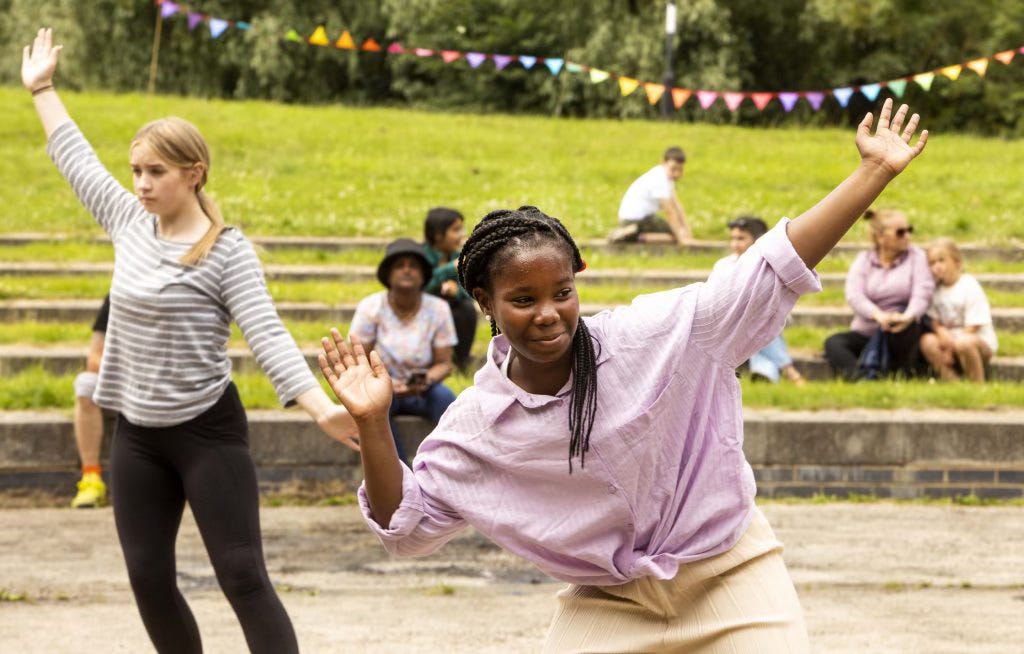Introduction
Years ago, I did my internship at an organization called Youth Track in Denver, Colorado. It was a correctional facility program for young kids, ages 11-18, who broke the law through one offense or the other. Activities in the program include one hour of sports like basketball, soccer and baseball. Since basketball was not popular in Nigeria, I usually chose to hang out with the players with a desire to learn the sport from them. Needless to say, they all assumed that being black and African, I should naturally know how to play basketball. When I tried thrice and could not make the basket, one of them dismissively said: “he aint black.”
Stereotypes About Sports and Dancing
Stereotypes can be bad and negative: examples abound: all blacks play sports; all black men are involved in recidivism; black people can dance; whites cannot jump; whites girls cannot dance like blacks (if you are still with this mindset, please watch the movie, Save the Last Dance). The movie shatters all stereotypical expectations especially among young people. Growing up as a child, my father was shocked to see Hausa men from Northern Nigeria at the university of Ibadan; he firmly believed that Hausa people have no business in higher education. This stereotype was shattered when I attended post secondary education in the northern part of Nigeria with predominantly Hausa young people. Unfortunately, some ethnic groups in Nigeria still harbor this stereotype.
Generation Z and Dancing
Gospel and Theology of Dancing Among Generation Z Nigerian
Dancing is an expression of spirituality, embodying the soul’s language and its relationship with the divine, particularly within the Christian understanding of the Trinity. The Greek word, “perichoresis” meaning “go around” is used to describe the relationship, mutual indwelling and interpenetration and interconnectedness of the three persons of the Trinity: Father, Son, and the Trinity. It is a link between the body, soul, and the spirit. Dance, therefore is seen as a theological source revealing how humans participate in the relational and dynamic life of God.
As a teenager growing up in Nigeria, we used to refer to established churches like Anglican and Lutheran churches and others as “chosen frozen.” I belonged to a youth group that was vivacious, carrying the message of the gospel to the streets and down in the alleys of Lagos and Ibadan. We preached, sang, danced in buses, trains, and open grounds - all for Jesus. In the words of Paul: we were not ashamed of the gospel of Jesus for it is the power of God unto salvation. Some of us joined other groups that saw Jesus as Radical speaking truth to power without caring whose ox is gored. This was the kind of Jesus that I was attracted to. I must confess as I grew older, I have become more cerebral, sometimes looking at dancing theology young people engage in as a stage to be outgrown. Then a few students invited me to the Upper Room at Waynesburg University years ago where I witnessed students who used to be quiet in class really being vociferous for Jesus, singing, drumming, involving body, soul and spirit while praising God. I found myself “digging it” with them.
Conclusion
Watching young people doing the theology of dancing in Nigeria in recent weeks has been another eye opener. It does not have to be systematic or apologetical or deeply doctrinal in the academic sense of it. It is still a sacred, embodied dialogue with God revealing interconnectedness of body, soul, and Spirit. It is part of divine relationality and trinitarian communitarianism. It is theology not just as a doctrine but as lived, vivacious, kinetic reality. It is a way that young people connect with God or divine reality. And where the Spirit of God is, there is liberty.





Nice article describing dancing and the meanings it has including with Christianity; also feel that way when listening to some Nigerian music. Also sad about stereotypes that people carry about people of certain races; have heard of some of them including the mindset where white people cannot dance; also very sad experience where the blacks said you were not black because you weren’t good with basketball. A workshop at one of the NSBE conferences also highlighted stereotype threats where blacks are labeled as athletic and Asians labeled as mathematicians. Thanks for the article.